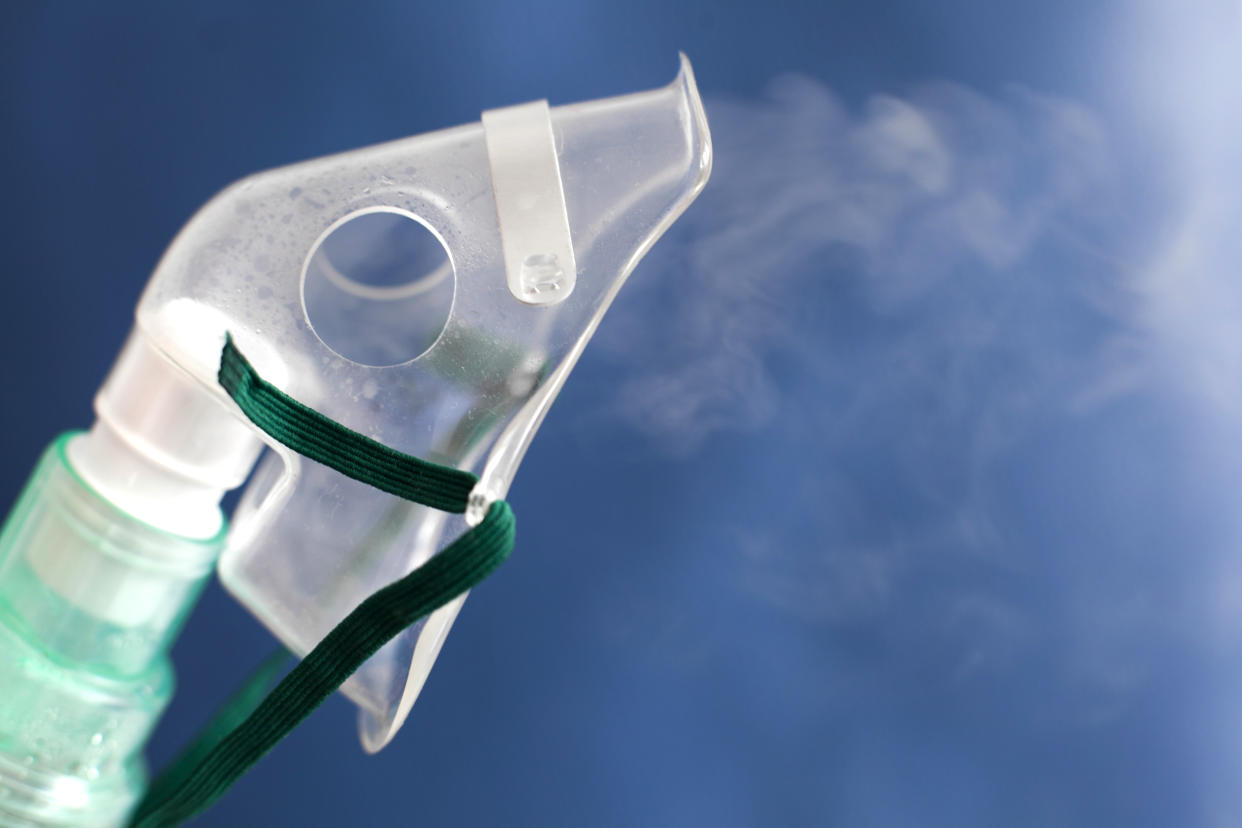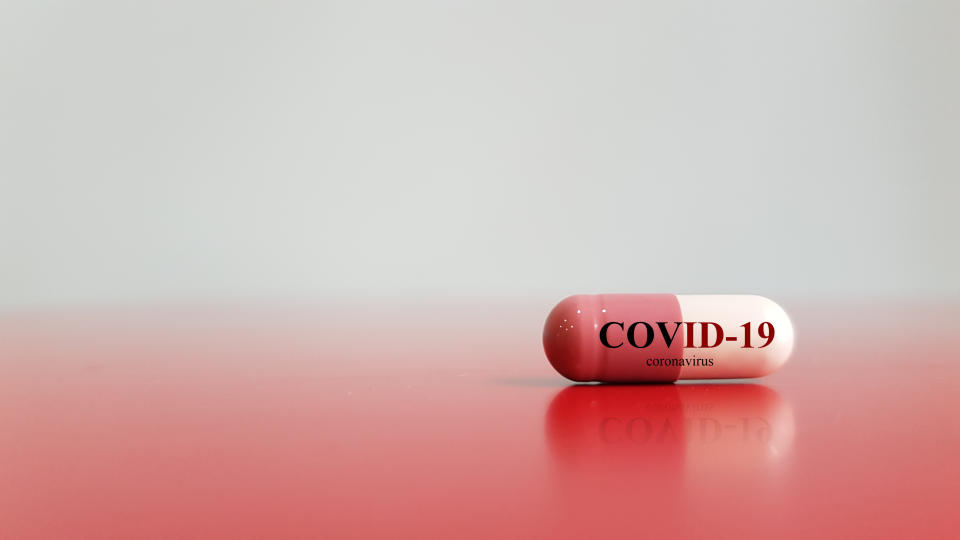Inhaled multiple sclerosis drug doubles severe COVID patient's chance of recovery, study suggests

A multiple sclerosis (MS) drug may give hope to people who are seriously ill with the coronavirus.
Medics have long wondered whether administering the naturally-occurring protein interferon beta could help someone with a critical case of the infection.
Interferon beta co-ordinates the immune response to viral infections, with studies suggesting the coronavirus directly suppresses the protein’s release.
To better understand the drug’s potential, scientists from the University of Southampton looked at 98 patients across nine UK hospitals.
Read more: Long COVID patient 'gets so dizzy he cannot write a letter'
Around half were given an interferon beta formulation called SNG001 – which reaches the lungs directly via a mouthpiece – every day for up to two weeks, while the remainder took a placebo.
Results revealed those on interferon beta were twice as likely to recover to the point where their everyday activities were not limited within 14 days.

Early research suggests four out of five coronavirus cases are mild, with the majority of patients enduring moderate symptoms – or none at all – that do not require treatment.
At the start of the pandemic, critically-ill patients were offered supportive care like ventilation that helped to keep them alive while their immune system worked to fight off the infection naturally.
Read more: Black people twice as likely to catch coronavirus as white counterparts
Studies have since found steroids can cut the risk of death among seriously-ill coronavirus patients by up to a third, prompting the NHS to start using versions of the low-cost drug.
Research has so far failed to find any benefit for a range of treatments tested on milder cases of the infection.
Watch: How is severe coronavirus treated?
With the number of confirmed global coronavirus cases exceeding 52 million since the outbreak was identified, the Southampton team felt there was a pressing need to develop new treatments for COVID-19, the disease caused by the infection.
To learn more, the Southampton team analysed patients with confirmed coronavirus who were admitted to hospital between 30 March and 30 May.
The patients were randomly allocated to receive either interferon beta or a placebo once a day for up to two weeks, and then followed for a maximum of 28 days.
At the start of the study, 37 of the 48 patients receiving interferon beta required oxygen, compared with 29 of the 50 on placebo.
By day 15 or 16, those who received interferon beta were twice as likely to show an improvement in their clinical condition compared to the patients in the placebo group, according to results published in The Lancet.
Read more: The obstacles that could hold back Pfizer's coronavirus vaccine
Among those on placebo, 11 (22%) developed severe disease – defined as requiring mechanical ventilation – or died between the first dummy inhalation and day 15 or 16.
This is compared with six (13%) cases of severe disease among those who received interferon beta, none of whom died.
Over the 14-day treatment period, 21 (44%) of the patients who received interferon beta recovered, compared with 11 (22%) in the placebo group. Recovery was defined as a patient no longer being limited in their activity.
On day 28, the interferon beta patients were over three times more likely to have recovered than those on placebo.
“The results confirm our belief that interferon beta, a widely known drug approved for use in its injectable form for other indications, may have the potential as an inhaled drug to restore the lung’s immune response and accelerate recovery from COVID-19,” said lead author Professor Tom Wilkinson.
“Inhaled interferon beta provides high, local concentrations of the immune protein, which boosts lung defences rather than targeting specific viral mechanisms.
“This might carry additional advantages of treating COVID-19 infection when it occurs alongside infection by another respiratory virus, such as influenza or respiratory syncytial virus [an infection of the lungs and respiratory tract] that may well be encountered in the winter months.”
When it comes to safety, 26 (54%) of the patients in the interferon beta group endured an adverse event, compared to 30 (60%) on placebo. The most common complaint was a headache.
While it may all sound very encouraging, the scientists acknowledged their study was relatively small.
The patients in the interferon beta group also had more severe disease at the start of the trial, as well as a higher rate of elevated blood pressure, which can complicate coronavirus symptoms.
Diabetes and heart disease, also risk factors for severe disease, were higher in the placebo group.
The scientists are calling for larger studies to be conducted, while they look into the effectiveness of interferon beta in coronavirus patients with milder symptoms.
Writing in The Lancet, Dr Nathan Peiffer-Smadja – from the hospital Assistance publique-Hôpitaux in Paris – pointed out an injectable form of interferon beta has so far failed to demonstrate efficacy in COVID patients.
“The safety of nebulised [when a drug is inhaled as a fine spray] interferon beta will be of special interest since nebulisation of interferon has no marketing authorisation for any indication yet,” he wrote.
The drug is generally injected.
Dr Peiffer-Smadja flagged longer term use of interferon beta may trigger inflammation, which needs to be studied further.
Nevertheless, he added: “It will be interesting to study whether there is an impact of interferon beta on prolonged symptoms, especially pulmonary.”
It is increasingly emerging that not every coronavirus patient who goes on to test negative for the infection returns to a clean bill of health, with some enduring long COVID.
Watch: Can you catch coronavirus twice?



